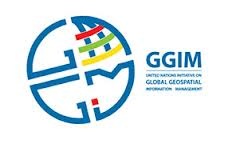News in 2015

|
Global Geodetic Reference Frame for Sustainable Development
(GGRF) resolution adopted by the United Nations General Assembly
Thursday 26 February 2015, co-sponsored by 52 Member States

On 26 February 2015 The United Nations General Assembly adopted the UN
resolution on Global Geodetic Reference Frame for Sustainable Development
that was initiated by the Republic of Fiji.
In their press release UN-GGIM writes:
The science that supports the precise pinpointing of people and places
should be shared more widely, according to the United Nations General
Assembly as it adopted its first resolution recognizing the importance of a
globally-coordinated approach to geodesy – the discipline focused on
accurately measuring the shape, rotation and gravitational field of planet
Earth.
Geodesy plays an increasing role in people’s lives, from finding
disaster victims to finding
directions using a smart phone.
This UN Resolution is one concrete example of an outcome from the UN
GGIM, in which FIG has been active, and FIG as well as IAG are mentioned in
the final Resolution:
"Recognizing further the extraordinary achievements made by national
mapping and space agencies, geodetic commissions, research organisations and
universities, and other international organisations such as the
International Federation of Surveyors, building upon initiatives of the
International Association of Geodesy, representing the global geodetic
community, in measuring and monitoring changes in the Earth's system on a
best-effort basis, including the development of the now adopted
international Terrestrial Reference Frame..."
Last year at the FIG Congress 2014 in Kuala Lumpur, the work of UN GGIM
was highlighted at a number of occasions and the resolution was discussed at
the Pleanary sessions, in technical sessions as well as FIG facilitated a
meeting, chaired by FIG Commission 5 Chair 2011-14 Mikael Lilje. The outcome
from the FIG Congress was a FIG Statement where FIG expressed the importance
of the resolution and urged the member organizations to bring the Statement
back home to the respective countries. FIG is now pleased to note that the
countries have accepted the resolution and would like to ask all member
organisations to note that the work continues to realize a road map for the
implementation of the Resolution.
The UN-GGIM-AP/FIG Statement on Global Geodetic Reference Frame
recognizes the growing need for an accurate and stable Global Geodetic
Reference Frame to support, inter alia, earth observation, including sea
level and climate change monitoring, natural hazard and disaster management
and a wide range of other activities in public and private sectors
throughout the World, contributing towards inclusive social progress,
environmental sustainability and economic development.
The Statement was adopted by the UN-GGIM-AP Executive Board at its
meeting on 20th June during the XXV FIG Congress and urges:
- member states and their representatives within UN-GGIM-AP together
with all member states and their representatives at the fourth session
of the Committee of Experts on Global Geospatial Information Management,
to support the approval of a draft resolution on Global Geodetic
Reference Frame for Sustainable Development, and to submit to the
2013-14 session of the UN General Assembly for final adoption; and
- FIG member associations and all other membership groups of FIG, to
take appropriate initiatives to inform and encourage the representatives
of their respective countries to the fourth session of the Committee of
Experts on Global Geospatial Information Management, to support the
approval of the draft resolution on Global Geodetic Reference Frame for
Sustainable Development and its submission to the UN General Assembly.
The UN General Assembly resolution outlines the value of ground-based
observations and remote satellite sensing when tracking changes in
populations, ice caps, oceans and the atmosphere over time. Such geospatial
measurements can support sustainable development policymaking, climate
change monitoring and natural disaster management, and also have a wide
range of applications for transport,
agriculture and construction.
Emphasizing that “no one country can do this alone”, the General Assembly
called for greater multilateral cooperation on geodesy, including the open
sharing of geospatial data, further capacity-building.
More information
Louise Friis-Hansen
FIG Manager
Copenhagen, 03 March 2015
03 March 2015
|
























